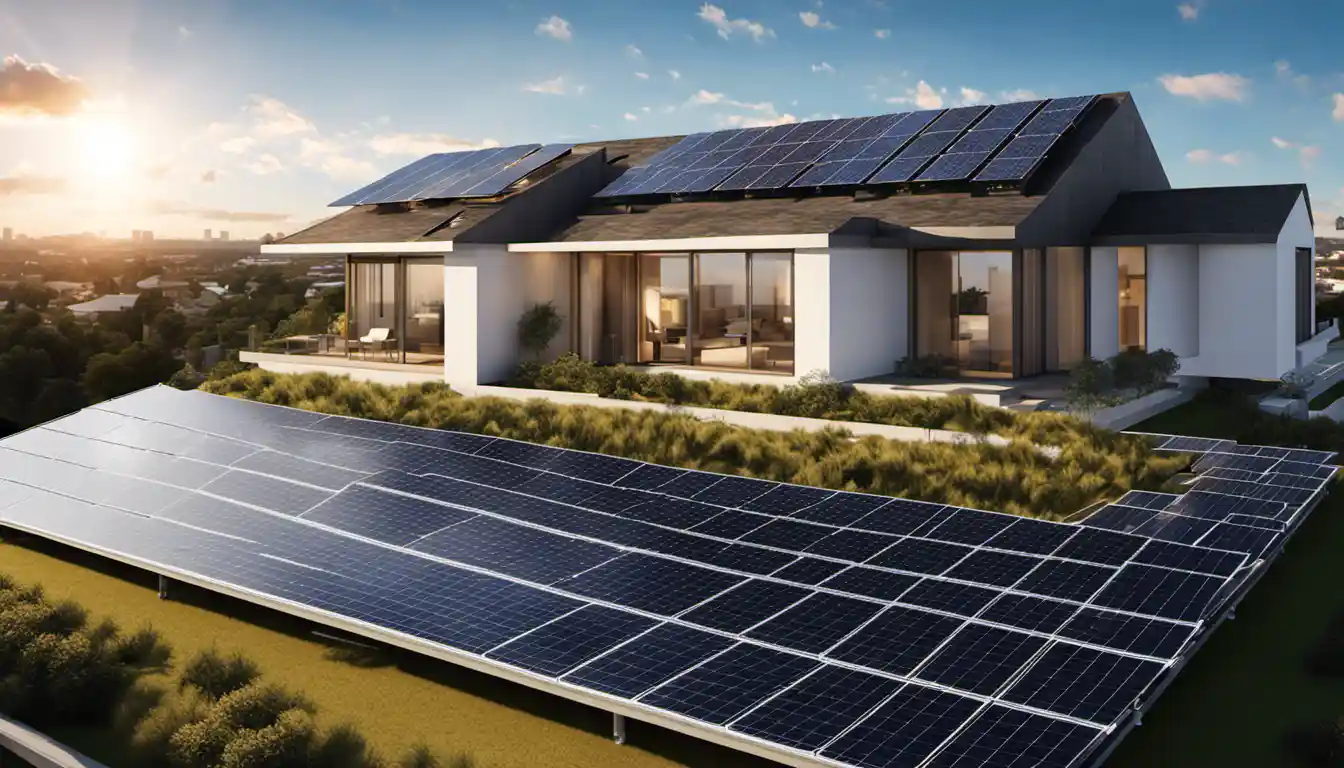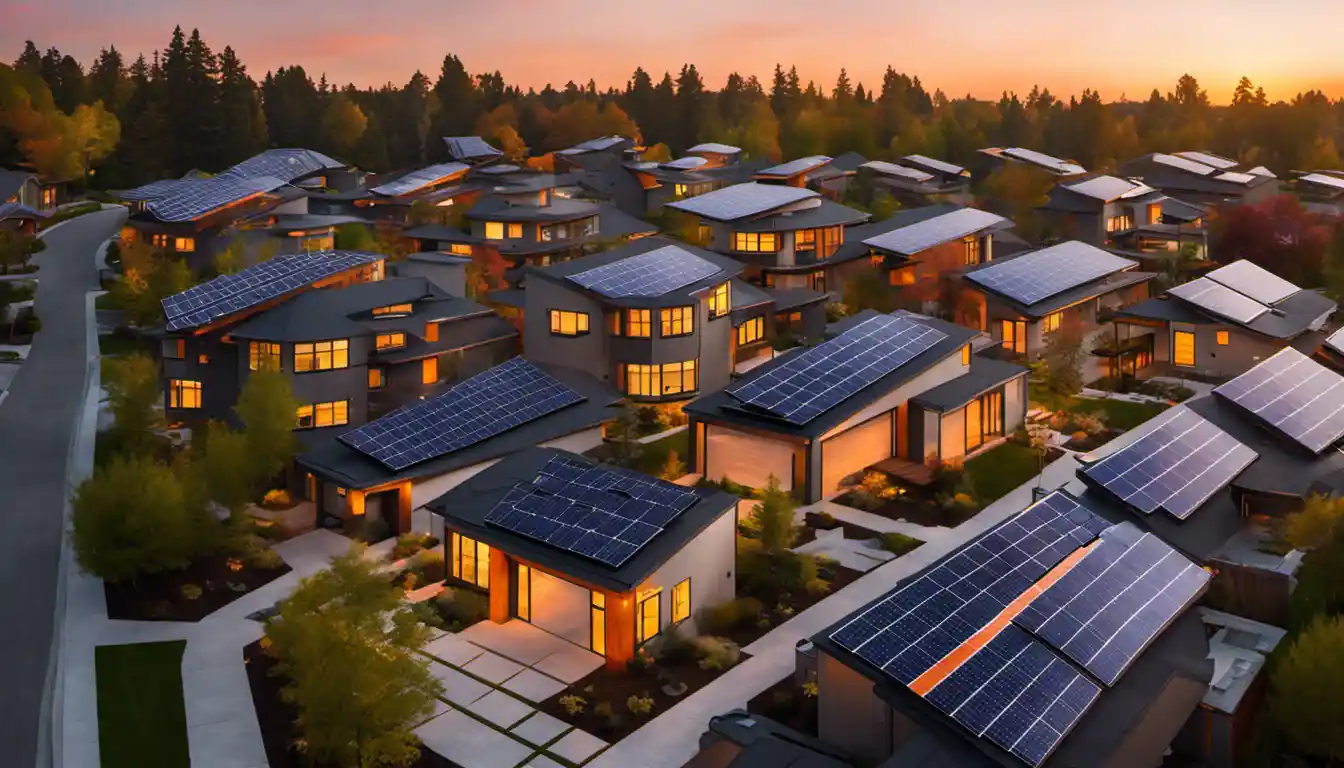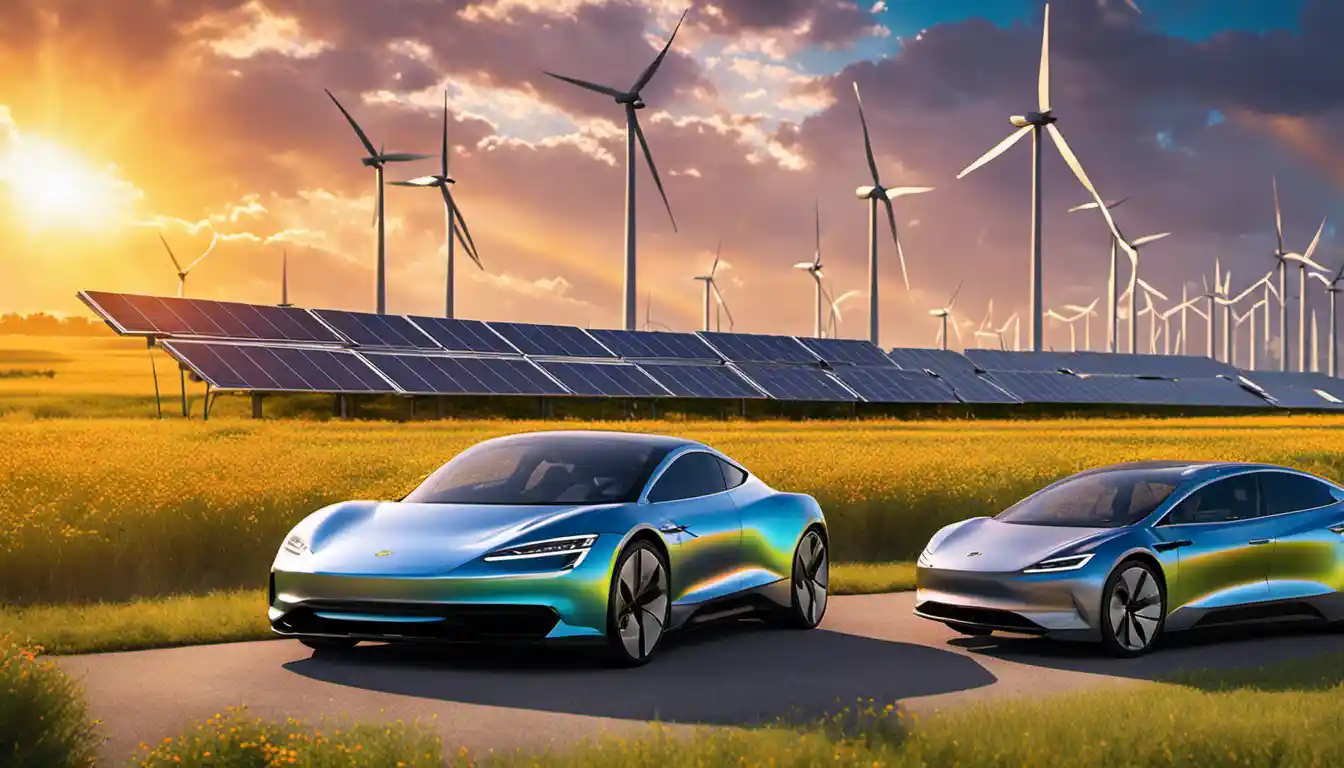Understanding Solar Power and Electric Vehicles
The best time to charge an electric vehicle (EV) with solar panels is during the day, typically between 9 AM to 3 PM, when solar power generation is at its peak. This time frame optimizes the direct use of solar energy, ensuring the process is more sustainable and cost-effective.
Definition and Function of Solar Panels
Solar panels are marvels of renewable energy technology, converting the sun’s radiant energy into electrical energy through a process known as photovoltaic effect. Composed of multiple solar cells, these panels absorb solar radiation and create an electric field across layers, generating electricity.
Introduction to Electric Vehicles (EVs)
Electric vehicles have become increasingly popular due to their efficiency, zero emissions, and lower operating costs compared to traditional combustion engines. These vehicles run primarily on electricity, stored in rechargeable batteries, rather than gasoline or diesel.
How to Charge Electric Vehicles with Solar Panels
Solar panels offer an excellent means of charging EVs. By doing this, you are leveraging renewable energy, reducing your carbon footprint, decreasing energy costs, and becoming a key player in the transition to more sustainable forms of transport.
Direct Charging from Solar Panels During the Day
To directly charge an EV using solar power, your panels should be generating ample electricity – usually more than your home appliances are consuming. This typically occurs during sunny days from about 9 AM to 3 PM. So, when considering the best time to charge EV with solar panels, aim for this window to achieve maximum efficiency.
Charging Using Stored Solar Energy
Alternatively, you can store excess solar energy produced during the day in a home battery system, then use this stored energy to charge your EV at any time – even at night.
Using a Portable Solar Panel for EV Charging
Portable solar panels are another option for charging EVs. While these are typically less powerful than permanent installations, they provide flexibility to charge whenever and wherever there’s sunlight.
Optimal Time to Charge EVs: The Solar Perspective
Determining the best time to charge your electric vehicle depends greatly on your specific conditions, including your location, the size and efficiency of your solar panel system, and your battery’s capacity.
Daytime Charging Using Solar Power Surplus

As previously mentioned, the best time to charge your EV with solar panels is when you’re generating more electricity than you’re consuming – usually during midday sunlight hours.
Night-time Charging when Solar Production is Insufficient
While solar panels are inactive at night, if you have a home battery system that has stored excess solar energy during the day, this might be an optimal time to charge your EV. This strategy reduces pressure on the grid during peak usage hours and makes use of your renewable energy.
Factors Influencing Charging Time
Charging time can vary based on several factors, such as the EV’s battery capacity, the solar panel’s output, and the battery’s discharge level.
EV Battery Capacity
Larger EV batteries will require more time to charge. For example, a Tesla Model S, with a 100kWh battery, will require more charging time than a Nissan Leaf with a smaller 40kWh battery.
Solar Panel Output
Solar panel output can be impacted by factors such as the amount of sunlight, panel efficiency, and the angle of panels towards the sun. The greater the output, the quicker your EV will charge.
Battery Discharge Level
Your EV battery’s discharge level will also impact charging time. The greater the discharge, the longer it will take to charge the EV.
Financial Optimization: Saving Money with Solar Charging
By carefully picking the best time to charge EV with solar panels, you can maximize savings on your electricity bill.
Time of Use (TOU) Billing Explanation
Many utilities follow a Time of Use (TOU) billing system, charging more for electricity during peak usage periods — typically during the weekday evenings, when usage is highest.
How TOU Affects Solar Charging Costs
By charging your EV during off-peak hours when electricity prices are lower, or by taking advantage of surplus solar energy during the day, you can significantly save on your energy costs.
Understanding Net Metering

Net metering is a billing mechanism where you can sell excess solar power back to your electric company. If your solar panels produce more electricity than you need, you might be able to use the earnings from net metering to offset the cost of recharging your EV during non-solar-producing hours.
Net Metering as a Cost-Saving Measure
Through net metering, you reduce your monthly utility bill. Even if you have to charge your EV at night using grid energy, the cost can be offset by the excess solar energy you sold back to the grid.
Environmental Impact of Solar Charging for EVs
By applying the knowledge of the best time to charge EV with solar panels, you can significantly reduce your carbon footprint, optimizing the environmental benefits that come with solar energy and EV use.
Reduction in Carbon Footprint
Solar-charged EVs reduce harmful emissions that contribute to global warming, making your driving experience eco-friendly.
Role in Promoting Sustainable Energy Usage
By highlighting solar-powered vehicles, we can inspire more people to transition towards renewable energy sources, resulting in a more sustainable future.
The Role of the EV User as a Good Grid Citizen
Solar-powered EV users contribute to stability in the electrical grid by reducing the load and even feeding energy back through net metering.
How Solar Charging Reduces Stress on the Grid
By reducing reliance on the grid and using solar power surplus to charge EVs during the day, we can significantly ease the load on our power grids.
The Impact on Grid Dependence
EVs charged via solar panels are not just vehicles, but active components of a resilient and decarbonized grid.
The Limitations and Ways to Maximize Efficiency
Solar charging of EVs has its limitations. Whether it be the inefficiency of solar panels during cloudy or rainy days, or the challenge of charging an EV at night, these can be navigated by maximizing charging efficiency.
Limitations of Solar Charging for EVs

The primary limitation of solar charging is weather dependency. Solar power generation is most effective in clear, sunny conditions. However, advanced technologies and batteries that store excess solar power offer solutions.
How to Maximize Charging Efficiency
To maximize efficiency, consider installing a solar energy battery storage system. This device stores surplus power for use during sunless hours, ensuring your EV can charge regardless of the weather or time of day.
The Future of Solar Charging for Electric Vehicles
As technology advances and prices of solar panels and EVs continue to drop, society’s move towards more sustainable living is accelerating.
Technological Advancements in Solar panels and EV Batteries
Innovations in solar energy and EV technologies, such as improved solar panel efficiency and decreased EV battery costs, are promising for the future of solar charging.
Policy and Regulations affecting Solar Charging
Government policies and regulations are playing a vital role in this transition. From tax incentives for purchasing solar panels and EVs, to regulations promoting renewable energy, the future looks bright.
The Future Scope of Solar Charging for Electric Vehicles
I predict a future where solar evangelists will continue finding innovative ways to improve charging efficiency, and as a result, the query ‘how to charge an electric car with solar panels’ will become a thing of the past, as it becomes a norm.
Conclusion: Utilizing Solar Power for EV Charging
The goal of leveraging the power of the sun to charge your EV is to optimize that process to be as cost-efficient and sustainable as possible. Remember, the best time to charge EV with solar panels is during peak sunlight hours when your solar system is producing a power surplus.
Recap of Key Factors for Optimal Charging
To recap, charge your EV in the midday (9 AM – 3 PM), when your solar panels are generating more power than your home consumes. Alternatively, use a home battery system to store excess solar power for later use, offering the flexibility to charge at night.
Final Thoughts on Solar Charging for EVs
As an experienced solar energy enthusiast, nothing excites me more than the link between solar power and electric vehicles. By knowing how and when to charge your EV with solar power, you are setting yourself up for a future that is both cost-efficient and environmentally friendly.



